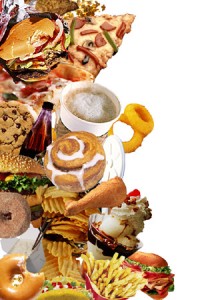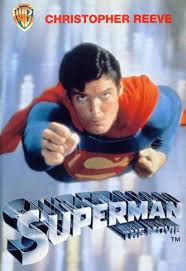The author realizes it’s time to let some things go.
I’ve been making frequent visits to my father’s warehouse in Saugus, Mass., lately, digging through a bunch of boxes jammed into a crevice behind many pallets piled high with more boxes. The boxes I’ve been rummaging through are 15-20 years old, and some of them break apart at the slightest touch.
I’ve been hunting for my old notebooks from the late 1980s and early 1990s, the ones I filled with poems and lyrics I’d eventually use in the band Skeptic Slang. I figured I’d be lucky to find at least one notebook, and if I was really lucky I’d find one of our old recordings.
This hunt began a couple months ago, the day I rummaged through my grandfather’s old footlocker, which I’ve kept over the years and filled with all kinds of stuff. Among my finds:
A poem my old friend Joy — Sean Marley’s widow — wrote about me. Reading it brought on a feeling of loss, because she dropped out of my life after his death.
That should have been my first clue to stop looking for material things from the past, and yet I persisted.
I recently reconnected with Joy, which probably accelerated my drive to find the notebooks. If she could come back into my life so soon after I found that poem, what other shards of that old life could I reconnect and glue back together?
Two storage dives later, I haven’t found the notebooks. But I found some other, interesting things, including a ton of old pictures of my great-grandmother, who was a major force in my younger life, along with pictures of my late brother, Michael.
During yesterday’s rummage fest, I found an old inhaler of Granny’s that had to be some 30 years old. When I pressed down on it, spray still came out.
Yesterday, as I emerged from the pile covered in dust, frustrated that I had failed to find the notebooks, a feeling came over me. Why, I wondered, was I trying so hard to find these things? The more I thought about it, the more it bothered me.
I realized this was becoming an obsession — a typical OCD-driven pursuit. My life has been pretty damn good in more recent years. I’ve experienced sanity, clarity and joy I never thought possible a decade ago. So what the fuck was I looking for? Clearly, I’m still trying to fill a hole in my soul. But I thought I’d already stitched that hole shut. I suppose the lesson here is that you never fill the hole completely, you just learn to manage it and keep it from sucking in all other life.
This obsession isn’t just about MY notebooks. Sean Marley kept journals, and I’ve been yearning to look through his last couple years of entries. Something in me needs to see what, if anything, he had to say about his deepening depression and whether or not there was anything I could have done to steer him to the light.
I don’t think I’ll ever see the inside of those journals, because I really have no right to see them. They’re in Joy’s possession, and while I thought about asking if I could see them, I’ve decided not to. I have no right to see them. None of my business. Period. Besides, as my friend Mary put it, seeing those journals won’t change a thing about the past or the direction life took. And since that direction has been a good one, why would I want to change it anyway?
I’m also done looking for those notebooks.
What if I found all those lyrics? I’m never going to sing them again. And they won’t fill the hole — whatever that hole is — either.
I mentioned all this to Erin last night, and she pointed out that we humans are the sentimental sort. While finding old things won’t change anything, there’s still the sentimental value.
There’s nothing wrong with that in and of itself. But I’ve decided it’s time to let go.
That doesn’t mean I never want to see the notebooks again, but I’m done looking for them. if they turn up, great. But I don’t need them.
I don’t need to read Sean’s journals, either.
The reasons are simple:
–The brotherhood between me and Sean Marley was a defining thing in my life. As badly as it ended, we each got something important out of the friendship. I probably got more out of it than he did, because he helped me get past the rubble of childhood and come into my own. I’ve been told — and I’m starting to believe — that there was nothing I could have done differently that would have steered Sean down a better path. But I can honor his memory now by being a good Dad to the boy I named for him, and by using this blog to smash the stigma that keeps people with mental illness from getting the help they need.
— I’m chatting with Joy again, and that’s huge. I don’t need to bother her for the sake of my own craving for closure. Just having her back as a friend is good enough.
— I also remain friends with my former band mates, so why keep trying to rehash the creativity behind Skeptic Slang? What we had was good, but the music wasn’t meant to go on. It’s the friendships that were meant to go on.
— In the final analysis, God is going to keep pushing me in the direction I need to be in, and I learned long ago that messing with God’s will is futile, if not stupid altogether.
I’m just going to be myself and see what happens.






